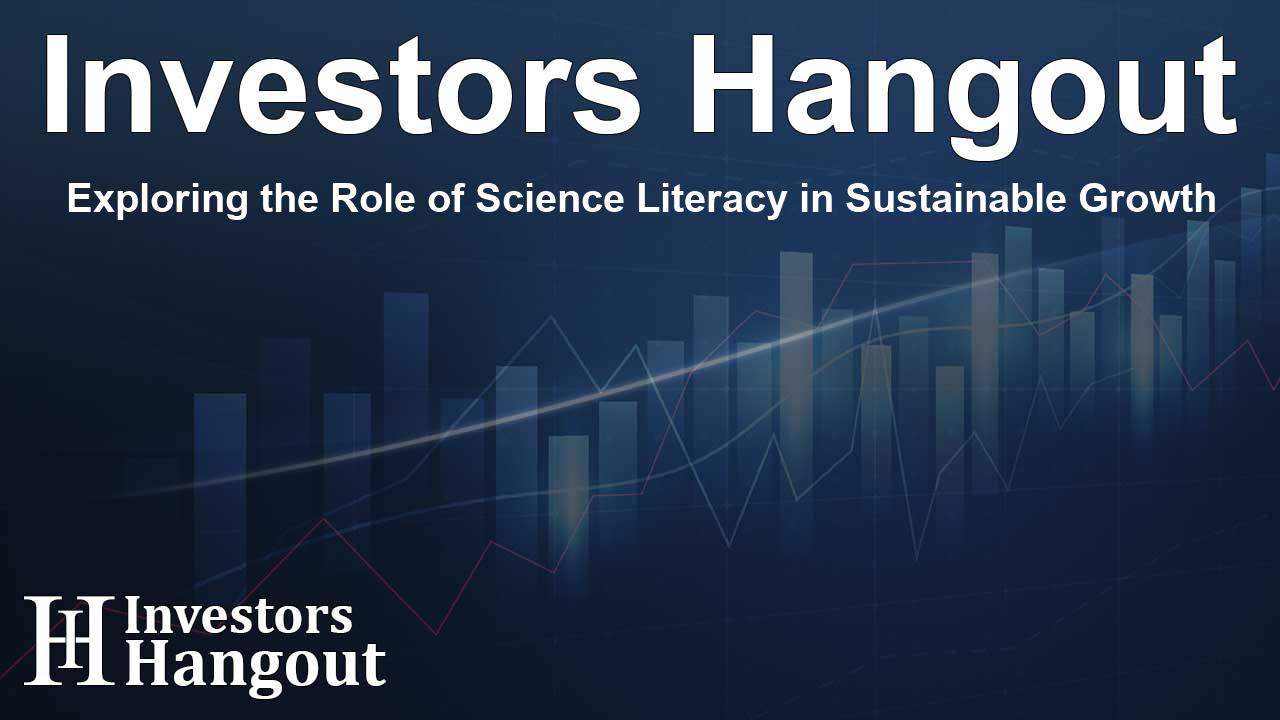Exploring the Role of Science Literacy in Sustainable Growth

Exploring the Role of Science Literacy in Sustainable Growth
The emphasis on science literacy became increasingly clear during the recent World Conference on Science Literacy (WCSL). The conference began with discussions centered around the theme 'Enhance Science Literacy, Empower Joint Development.' With esteemed organizations backing this initiative, the event underscored the significance of public understanding of science in fostering sustainable communities.
Key Themes Discussed at WCSL
During the event, prominent leaders discussed various facets of science literacy influencing sustainable development. The keynote speakers highlighted how critical it is for individuals to be educated in scientific principles, enabling them to make informed decisions in our rapidly evolving world. Scientific literacy allows citizens to engage with science-based policies and innovations critically.
The Launch of the International Decade of Science
Ezra Clark, a representative from UNESCO, announced the commencement of a significant initiative aimed at inspiring sustainable development through scientific understanding. This initiative, the International Decade of Science for Sustainable Development, is set to operate from 2024 to 2033. It aims to leverage all scientific disciplines to facilitate positive changes in societies and environments alike.
Understanding the Risks of New Technologies
An essential point raised during the discussions was the rapid development of advanced technologies, particularly artificial intelligence. Gong Ke emphasized the necessity of educating the public on the implications and possible risks associated with AI. By enhancing understanding, we can better navigate the challenges posed by these technologies and minimize unfounded fears.
Benefits of Fostering Science Literacy
Science literacy extends beyond mere familiarity with scientific facts; it involves critical thinking and the capacity to assess information. Sook-kyoung Cho from the PCST Network highlighted that educating the public in science helps them evaluate information effectively, enabling them to take action based on reliable data rather than hearsay.
The Role of Educators in Enhancing Science Literacy
Furthermore, educators play a pivotal role in this mission. Julie A. Luft emphasized that science teachers must evolve to encourage this critical thinking in students. They should not only teach facts but also foster a love for inquiry and discovery, helping students understand how scientific processes operate.
The Importance of Collaborative Networks
The conference also addressed the vital need for collaboration among various stakeholders to promote science literacy. Rosalia Vargas showcased how building networks that encourage cooperation could harness collective strength in advocating for public science education. This cooperative approach is crucial to developing a society that values and understands scientific inquiry.
Future Directions for Science Literacy Advocacy
As the WCSL wraps up, it is clear that this global platform will continue to champion science literacy. Moving forward, the impression left by the conference remains that increasing scientific understanding among the public is essential. The dialogues initiated here shall lay the groundwork for future collaborative efforts in science popularization.
Frequently Asked Questions
What is the main theme of the 2024 WCSL?
The main theme is 'Enhance Science Literacy, Empower Joint Development,' focusing on the importance of scientific understanding in sustainable development.
Who announced the International Decade of Science?
Ezra Clark from UNESCO announced the International Decade of Science for Sustainable Development, targeting the years from 2024 to 2033.
Why is science literacy important for public policy?
Science literacy helps individuals engage critically with scientific information and make informed decisions regarding science-based policies.
What was highlighted about artificial intelligence?
Gong Ke emphasized the need for public education on the implications of AI, aiming to mitigate misconceptions and fears associated with new technologies.
How can teachers improve science literacy?
Teachers can improve science literacy by adopting new teaching methods that promote inquiry and critical thinking in students.
About The Author
Contact Ryan Hughes privately here. Or send an email with ATTN: Ryan Hughes as the subject to contact@investorshangout.com.
About Investors Hangout
Investors Hangout is a leading online stock forum for financial discussion and learning, offering a wide range of free tools and resources. It draws in traders of all levels, who exchange market knowledge, investigate trading tactics, and keep an eye on industry developments in real time. Featuring financial articles, stock message boards, quotes, charts, company profiles, and live news updates. Through cooperative learning and a wealth of informational resources, it helps users from novices creating their first portfolios to experts honing their techniques. Join Investors Hangout today: https://investorshangout.com/
The content of this article is based on factual, publicly available information and does not represent legal, financial, or investment advice. Investors Hangout does not offer financial advice, and the author is not a licensed financial advisor. Consult a qualified advisor before making any financial or investment decisions based on this article. This article should not be considered advice to purchase, sell, or hold any securities or other investments. If any of the material provided here is inaccurate, please contact us for corrections.
